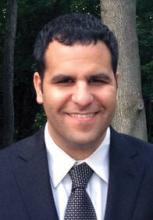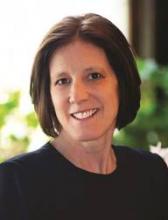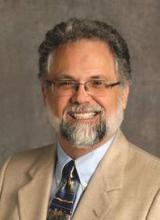We are pleased to introduce Curbside Consult with the Group for the Advancement of Psychiatry's (GAP) Family and Cultural committees. The column is inspired by the DSM-5's emphasis on developing a cultural formulation of patients' illnesses and addressing family dynamics and resilience in promoting care that fosters prevention and recovery.
What is GAP?
GAP was formed in 1946 under the leadership of Dr. William Menninger by a group of young psychiatrists who had served in World War II. They returned to the United States to find an inadequate system of civilian care. They were eager to professionalize the field and collaboratively develop new and creative thinking. They developed an organization that met as a whole twice a year, organized into committees of particular interest to the members and crucial to the needs of psychiatric care. The committees wrote monographs that formed a crucial role in the development of modern psychiatric thought.
Mission of GAP
- Bring together top psychiatrists of all disciplines
- Offer an objective, critical perspective on current issues facing psychiatry
- Develop smart analysis and recommendations
- Shape psychiatric thinking, clinical practice, and mental health programs
- Advocate for necessary changes in the psychiatric field
- Inspire the next generation of leading psychiatric thinkers
The Family and Cultural Psychiatry committees want to focus psychiatrists on the resilience inherent in the families and cultures of our patients in order to promote psychiatric care that focuses on prevention and recovery.
The Family and Cultural Psychiatry committees see every patient as connected to family members and belonging to a network of cultures that might include their national origin, race/ethnicity, religion/spirituality, language, occupation, age, sexual orientation and gender identity, or any other element of the person's background and collective life.
Over time, these family and cultural influences have shaped all aspects of the person’s response to adversity, experience of illness, and expectations of help seeking, even among patients who are currently living alone or do not recognize their background as explicitly cultural. This influence is highly individual; each person has his/her own combination of family and cultural experiences. How does the psychiatrist access this experience and use it to help develop resilience in our patients? How do we encourage them to use strengths/support from their family and culture, and to identify narratives that are helpful?
We see this column as one way to help answer these questions. We will bring to bear both family and cultural perspectives on the care of patients in everyday clinical practice through our comments on case vignettes sent in by readers. It can be challenging to integrate an understanding of family and culture into each patient encounter.
Our committees will work together to develop a coherent response that integrates both family and cultural perspectives and can be applied in real-world patient situations by clinicians who might not have access to specialized consultation. We aim to contribute to the growing awareness in our field of the cultural complexity of our patients, as developed and transmitted in the nexus of their families, which requires from us as clinicians a more inclusive and holistic approach to care.
This column helps to meet the goals of accreditation bodies such as The Joint Commission and the Accreditation Council for Graduate Medical Education (ACGME) for cultural and linguistic competence and patient- and family-centered care. Understanding how to think about, assess, and engage in treatment with the diversity of our patients’ cultural and family backgrounds constitutes important educational topics for all psychiatric trainees. In conjunction with formal didactics, these cases can be used as a focus for discussion in psychiatric residency training programs, ACGME Clinical Learning Environment Review (CLER), health care quality improvement activities, and faculty development programs.
Practicing clinicians also will find the DSM-5 Outline for Cultural Formulation and Cultural Formulation Interview to be a helpful clinical tool for eliciting and organizing cultural information, and in differential diagnosis and treatment planning.
The following is a list of the guiding principles we will use for assessment:
1. Heterogeneity and diversity exists within all families, cultures, and societies.
2. Avoid stereotyping, essentializing, and overgeneralizing.
3. Individualize and tailor diagnostic assessment, treatment, and care.
4. Address any language access barriers through the use of qualified medical interpreters and appropriately translated educational and informational materials.
5. Employ plain language in communicating with patients with limited health and mental health literacy.
6. Recognize the impact on both the patient and the clinician of our families of origin.
7. Engage in reflective, mindful practice and attend to cultural countertransference to provide insight into one’s own values, beliefs, and behaviors.




